Ferguson

Could it be that the crescendo of dissention is divinely synched to yet again heighten disruptive unease among the status quo? Could it be that the promise of Emmanuel — "God is with us" — as proclaimed by the heavenly host, but feared by powerful elite, is unavoidably linked through the eternal truth — such that even the Church universal cannot celebrate one and avoid the other? Could it be that through Advent, we are called to acknowledge the humanity and parity of personhood, rather than rest in the laurels of privilege? The anger of youthful Ferguson protests was marginalized and dubbed as riots, but could it be that this Advent response manifested in expanded multiethnic solidarity is of divine intent to raise challenge to elitism and to demand respect for people of color as equals rather than as patronized subordinates? Could it be that whether or not the media chooses to ignore the connection, the Advent message for those with ears to hear is that perpetrators of brutality, the comfortable protectors of privilege, and the self-serving pundits of power that tried to nullify the everlasting promise were unsuccessful then and now? Could it be by divine design that unknown names, stolen lives, are now divinely lifted to eternal and global recognition as sacrificial symbols so that truth could come to light?

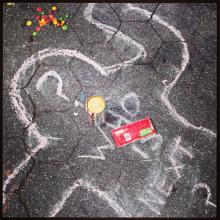
The stories of young black men being killed by white police are sparking a national conversation. However, public responses to these painful stories reveal an alarming racial divide. From an unarmed teenager killed in Ferguson, Mo.; to a 12 year-old boy shot dead in Cleveland; to a white police officer on video choking a black man to death in New York City; and a startling series of similar stories from across the country and over many decades — our reactions show great differences in white and black perspectives.
Many white Americans tend to see this problem as unfortunate incidents based on individual circumstances. Black Americans see a system in which their black lives matter less than white lives. That is a fundamental difference of experience between white and black Americans, between black and white parents, even between white and black Christians. The question is: Are we white people going to listen or not?
White Americans talk about how hard and dangerous police work is — that most cops are good and are to be trusted. Black Americans agree that police work is dangerously hard, but also have experienced systemic police abuse of their families. All black people, especially black men, have their own stories. Since there are so many stories, are these really just isolated incidents? We literally have two criminal justice systems in America — one for whites and one for blacks.
Are there police uses of force that are understandable and justifiable? Of course there are. If our society wasn’t steeped in a gun culture, many of these shootings could be avoided. But has excessive, unnecessary, lethal force been used over and over again, all across the country, with white police killing unarmed black civilians? Yes it has, and the evidence is overwhelming. But will we white people listen to it?

At the point of the writing of this article, it has been 124 days since unarmed 18-year-old Michael Brown was shot six times and killed by Ferguson police officer Darren Wilson.
Blocks from the spot where Brown lay dead in the tightknit Canfield neighborhood of Ferguson, Mo., protestors filled West Florissant Avenue, where Brown had been only minutes before his death. They were met by the local police force decked out in camouflage and body armor, armed to the gills with military-grade weapons, and rolling around in armored cars. Many commented that the streets of Ferguson looked like Fallujah.
It was both shocking and clarifying at once.
For the first time, Americans witnessed real-time outcomes of the National Defense Authorization Act, which funnels military weapons left over from past wars to local police municipalities across the country — in theory, to fortify local efforts in America’s drug war. Cable news cameras swarmed as wartime weapons, tactics, and protocols were enacted on unarmed, mostly black citizens exercising their First Amendment rights to assemble and exercise free speech.
Here’s the thing about war: There are only enemies and allies. There is no in-between.
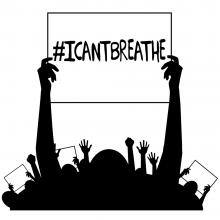
Our nation stands at a crossroads moment as the simmering crisis around policing and our justice system reaches a boiling point. Recent cases of police violence in Ferguson, Cleveland, and now Staten Island have stirred an awakening around what is increasingly understood as a pervasive and pernicious problem in America in which black lives are too often treated differently when it comes to police accountability and criminal justice.
Last week, I had the privilege of participating in a retreat with other faith leaders convened by Sojourners to learn about and make common cause with the ongoing efforts to seek justice in the tragic death of Michael Brown Jr. We spent a day talking to local faith leaders and young activists. We visited the memorial site in Ferguson where Brown was tragically killed and the streets where 120-plus days of protest have ensued. While it was heart-wrenching to stand and pray at the site where Brown was killed, I left the two days filled with a resilient sense of hope based on our conversations and interactions with a cross section of young people, most in their early to mid-20s, who embody modern-day freedom fighters. I hope we as a nation can listen to their voices and come to know their stories as we seek answers around what our response should be.
Young activists at the center of the protest movement in Ferguson are refusing to accept cosmetic change or symbolic commitments; instead they are fighting to transform their community and our nation so that neither punishment nor privilege will be systemically or viciously tied to the color of our skin. In the process, these young activists are picking up the broken pieces of the civil rights struggle. Their courage, willingness to sacrifice, and bold vision gave me a great deal of hope for what America can be.

I currently serve as Pastoral Associate at a Catholic parish in Buffalo, NY, where our pastor decided to hold monthly Prayer Hours for Peace in response to the violent outbreaks in Syria, the uprising in Ferguson over Michael Brown’s death, ISIS, gang violence — to name a few.
Our November Prayer Hour for Peace offered four rounds of Scripture passages and ten-minute reflection and prayer time, followed with an excerpt from a Pax Christi USA prayer called “Just for Today.”
I read this excerpt aloud:
“Just for today, I will believe that world peace is possible. I will remember that hope is the most important gift I can give my world.”
The next Scripture verse was from Psalm 122:6-8.
“Pray for the peace of Jerusalem: May those who love you be secure. May there be peace within your walls and security within your citadels. For the sake of my family and friends, I will say, Peace be within you.”
For the next ten minutes, I inhaled “belief….possible” and exhaled “hope most important gift.” Physically, my body relaxed, and I watched my hope flow out into my immediate surroundings.
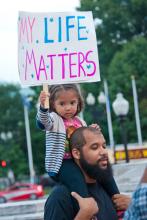
There is power in a name.
One of the things happening in our world right now is that people are “naming” injustice. No longer are we just talking about statistics, numbers and data. We are lifting up the names of the victims of a failed justice system. And there is something in a name that humanizes and personalizes the issue, and wakes us up: Trayvon Martin, Michael Brown, Eric Garner, Tamir Rice.
The numbers have names.
They remind us of the collateral damage of a failed system, and the urgency of this moment. We can’t make injustice history until we make injustice personal.
For many people of color, the victims of injustice have had names for a long time. Emmett Till helps us know how far we have come; Eric Garner reminds us how far we still have to go. But now these names are being talked about in homes and around dinner tables all over the world.
Every name of a life lost is an image of God. When we lost them, we lost a little piece of God’s image in the world. They are friends, sons, sisters, fathers and neighbors.



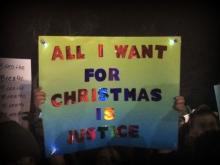
As I followed protesters along the National Mall after the non-indictment of New York City police officer Daniel Pantaleo, I was particularly struck by the comments of one black gentleman named Houston. Putting down a sign that said “Boycott Christmas,” he took a speaker, called for quiet, and, in the midst of the crowd, began to preach:
“We must move on to that new day in which justice will roll down like water, and righteousness like a mighty stream. It is time for black and whites to take hand and hand and move this nation beyond the pitiful historical dilemma … So black and white together, we must move on to where even the stones will shout out, ‘It’s time for America to be one.’”
“Amen,” someone shouted.
Amen, indeed.
Drawing on Amos 5:24 and Luke 19:40, Houston had brought the riches of a deep biblical tradition to bear on our contemporary political struggle. Like the early Christians, he called not only for justice but also for reconciliation between races. His faith had inspired him to act.
Or so I thought.
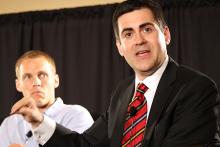
“African-American brothers and sisters, especially brothers, in this country are more likely to be arrested, more likely to be executed, more likely to be killed.”
It’s the kind of statement that’s often cited by black clergy and civil rights activists. But hours after a grand jury on Dec. 3 chose not to indict the New York City police officer who put Eric Garner into a fatal choke hold on Staten Island, those words came from none other than white evangelical leader Russell Moore.
With back-to-back grand jury decisions that white police officers will not face charges in the deaths of unarmed black men, white Christians, including evangelicals, have grown more vocal in urging predominantly white churches to no longer turn a blind eye to injustice and to bridge the country’s racial divides.
“It’s time for us in Christian churches to not just talk about the gospel but live out the gospel by tearing down these dividing walls not only by learning and listening to one another but also by standing up and speaking out for one another,” said Moore, president of the Southern Baptist Convention’s Ethics & Religious Liberty Commission.
Other white evangelicals issued similar pleas.
St. Louis County Prosecuting Attorney Robert McCulloch stood at the podium three nights before Thanksgiving and announced the St. Louis grand jury would not indict police officer Darren Wilson in the shooting death of unarmed 18-year-old Michael Brown in Ferguson, Mo. Moments after the announcement, Ferguson exploded in protests, then rage, then flames. Spontaneous protests also broke out in cities and towns across the country and carried on through the Thanksgiving holiday.
The morning after the announcement I received an email from friend and colleague David Bailey, who shared this song, “Don’t Shoot.” It was written and performed by students at Berklee College of Music, who go by the name Fleeceboi. They were so grieved by the announcement that they stayed up all night writing the song. I listened and wept.

The three of us put our cups of coffee on the counter and reached into our pockets for our wallets. The check-out clerk paid no attention to any of us. He seemed to be staring at someone or something in the back of the store.
“We’re ready to pay,” one of us said.
The clerk kept looking at the back of the store. A few seconds went by before he told us what had his attention.
“I’m watching that boy over there to make sure he don’t steal nothing,” the clerk said.
The three of us looked at the back of the store and realized the clerk was talking about our co-worker.
Four of us were carpooling across Florida on a work assignment several years ago. It took several hours to cross the state. We stopped at a place called Yeehaw Junction off Route 60 to use the restroom and get some coffee.
The three of us at the check-out counter were white, like the clerk. The co-worker accompanying us was black. The clerk assumed that because the three of us were white, we would understand and agree with his attitudes and assumptions about our co-worker – that he was dishonest because of the color of his skin. Needed to be watched. Couldn’t be trusted. Too dangerous to let out of his sight.
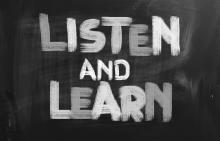
A few days ago, a friend of mine commented on a picture I posted on Facebook. It captured one of those rare moments in the daily grind of stay-at-home parenting where — in the midst of the diaper changes, meltdowns, and mealtime madness — there is a moment of pure delight. In this case, my two sons were sitting together for the first time in the front of a race car-themed shopping cart. My 3-year-old son was thrilled to have his infant brother “driving” with him. I couldn’t resist snapping a photo and posting it immediately. Having two sons of his own, my friend commented, “2 boys! What a great idea!”
I thought of this comment last Monday night when I heard the painful news of the grand jury’s decision in the Michael Brown case, and later when I heard of the same conclusion in the Eric Garner case. Yes, it was a great idea to have boys. My husband and I love them more than anything. They’ve brought more joy into our lives than we could ever have imagined. But, I wondered, how different would our experience be if we were parents of black sons instead of white sons? How much more worry and heartache would we face knowing the cards were stacked against them from birth? What would it be like to have to figure out how and when to have the talk — the one about law enforcement, no second chances and the need to go above and beyond in every situation?
I wasn’t always aware of the vastly different realities for people of color living in this country. My conversion was slow. Not the Damascus Road type of experience where I was blind for three days and then instantly I could see. No, it was and continues to be a long, slow, sometimes painful process of listening and learning.
Protests have again erupted across the United States following the Staten Island grand jury’s decision not to indict Daniel Pantaleo for the choking and killing of Eric Garner. Building off the online mobilizing network established in response to Ferguson, the most recent wave of community actions have gathered support via social media. After events are posted on Facebook or Tumblr, or simply spread through word of mouth, Twitter hashtags provide real-time updates that direct potential supporters to the location of a march.
In Washington, D.C., protests began outside the Department of Justice at 4:00 p.m. and continued throughout the city late into the night — through the National Mall, near the White House, the D.C. police department, and city hall. Comprising many races and many ages, crowds chanted phrases like, “Black lives matter” and “This is what democracy looks like.” One black mother, Shantelle, who was pushing her toddler in a stroller, explained why she was out marching today:
“We’re proud to be American. We’re military. We love our country. But we keep getting it, my son is gonna’ keep getting it. We’re not valued and we’re not looked at. I want him to grow up in a place where he doesn’t have to worry he wore the wrong hoodie, or he was playing with a toy gun, or he gets a chokehold, and dies.”
Another, older woman simply said, “I’m old. I hate that I have to be out here. I’m sick of doin’ the same old stuff.”

Bill Hybels, Senior Pastor for Willow Creek Community Church, spoke out last week on the ongoing Ferguson protests. In the video, shared this week by Willow Creek Church-affiliated artist group The Tungsten Collective, Hybels calls on people of faith to listen to the pain and hurt expressed by many since the August shooting of Michael Brown.
He quotes James 1:19, urging people of faith to “be quick to listen, slow to speak.”
Hybels has spoken out on racial reconciliation for years, and here underscores one reason why reconciliation work is often so difficult.
“It’s just so much easier to live in your own story than it is to try to understand the narrative of the other,” Hybels said.
Indeed, when it comes to interactions with law enforcement, the black experience and the white experience in America are “two totally different narratives [that often] … don’t touch each other until a Ferguson happens,” he said.
At one point the megachurch pastor emphasizes — almost uncomfortably lightheartedly — just how untouched he’s been by fear, crime, and violence in his neighborhood.
“[Peace] is all I’ve ever known. I’ve never had a single adversarial experience with a law enforcement officer in my entire life,” he said.
But in drawing a distinction in the difference of experience, he echoes a Jia Tolentino column in TIME earlier this fall on how social divisions are revealed based on which evils we mourn and pledge to fight against. While Hybels falls short of explicitly naming a power and privilege differential, he urges humility, listening, and seeking understanding among people of faith — all the more resonant today after the non-indictment ruling on the choking death of Eric Garner.
WATCH the full video here.
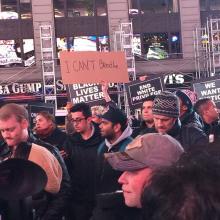
I was in Ferguson Wednesday when it happened: In a morally stunning decision, a Staten Island grand jury announced it would not bring criminal charges against a white police officer who choked a black man to death during a brutal incident last July. Stopped for allegedly selling some loose and therefore untaxed cigarettes, officer Daniel Pantaleo put a “chokehold” on Eric Garner, despite the fact that the move is against NYPD rules. Video of the incident shows Garner uttering his last words, “I can’t breathe.” New York’s medical examiner officially called this a “homicide,” but the grand jury said no charges will be made.
Of course, this comes just 10 days after the Ferguson grand jury decision not to indict another white police officer, Darren Wilson, for fatally shooting an unarmed black teenager named Michael Brown on Aug. 9. Sojourners had convened a retreat in Ferguson for both national faith leaders and local pastors to look deeply at the historical and theological foundations of the Ferguson events and reflect upon how the church must respond. Emotional calls from pastors in New York City came with the horrible news, and people just began to weep — one young man wailing, “This time it was all on video …. and it still didn’t matter! How can I as a black man bring a black son into this world?” Lament and prayers followed with a resolve from an extraordinary two days on the ground in Ferguson — to act.
Local experts in St. Louis County helped us understand the damage done to their local communities for decades that led to the response that erupted after the killing of Michael Brown. We walked silently and prayerfully alongside the memorial to the slain teenager on West Canfield Avenue with black parents imagining their own sons lying there, and white parents realizing this would never happen to our kids. We kept looking at the street where this bloody incident had taken place, feeling more and more doubt about the narratives the county prosecutor had used to exonerate and excuse the white police officer from any responsibility — or at least a trial to publically sort out “conflicting testimonies.”
We met in a church with seven young leaders of the Ferguson protest movement. In just 116 days, these young people had become self-educated and extraordinary leaders, and we listened to a compelling analysis of their urgent situation and how they were trying to apply the history of social movements to change their oppressive circumstances. Their chilling stories of police harassment and brutality, preceded by a narrative of the educational and economic brutality that black young people like them experience daily were transforming words for those of us who listened, spellbound. As I listened, I realized America would be converted by these young people’s honest and earnest conversation — they would win the national debate about our criminal justice system’s response to young people of color.

There’s this microaggression happening online, offline, and all around that has a nice sentiment, but really needs to stop. Can we call for a week-long moratorium on decrying “ALL LIVES MATTER?”
This is a request specifically for my white brothers and sisters, especially those in the church.
I, of course, as a white heterosexual married middle-class highly educated American male, believe that all lives matter. It’s something I’ve been fighting for my entire adult life. Whether it is the mother infected with HIV by her wayward husband in western Africa, whether it is the undocumented immigrant father who may be separated from his American-born children, whether it is the NRA card-carrying white uncle who does an honest job and is a good neighbor back in the midwest, whether it is the homeless thirty-something woman coming off a bad meth addiction but needing shelter during a difficult winter, of course, by all means, every life matters.
Your life matters. My life matters. All lives matter.
This is a non-negotiable. This is true. This is what it means to be made in the image of God, as we’re told in the Book of Genesis — everyone, whether you’re white, black, brown, male, female, straight, gay, bisexual, transgender, Republican, Democrat, rich, poor, nice, kind of a jerk, young, old, middle-aged, we all matter.
But these past couple weeks — these past four months, five months, 22 months? — it’s important that we stand with the ever-growing chorus and declare, yes, black lives matter. With the heartbreaking, soul-wrenching death of Michael Brown, the news just yesterday of another non-indictment in the death Eric Garner, or the dark night when Trayvon Martin was shot down in Florida, a chorus of voices has risen to declare with one voice and hashtag that #BLACKLIVESMATTER.

Just over one week after a grand jury elected not to indict Darren Wilson for the killing of Michael Brown, a Staten Island grand jury has cleared an NYPD police officer of any criminal charge in the death of Eric Garner.
The officer, Daniel Pantaleo, a white male, choked Mr. Garner to death as other police officers stomped on his head. Mr. Garner, 43, suffered from asthma and was suspected of illegally selling cigarettes.Along with other evidence, the grand jury viewed a video recorded by bystanders, which fully captured the violent arrest.